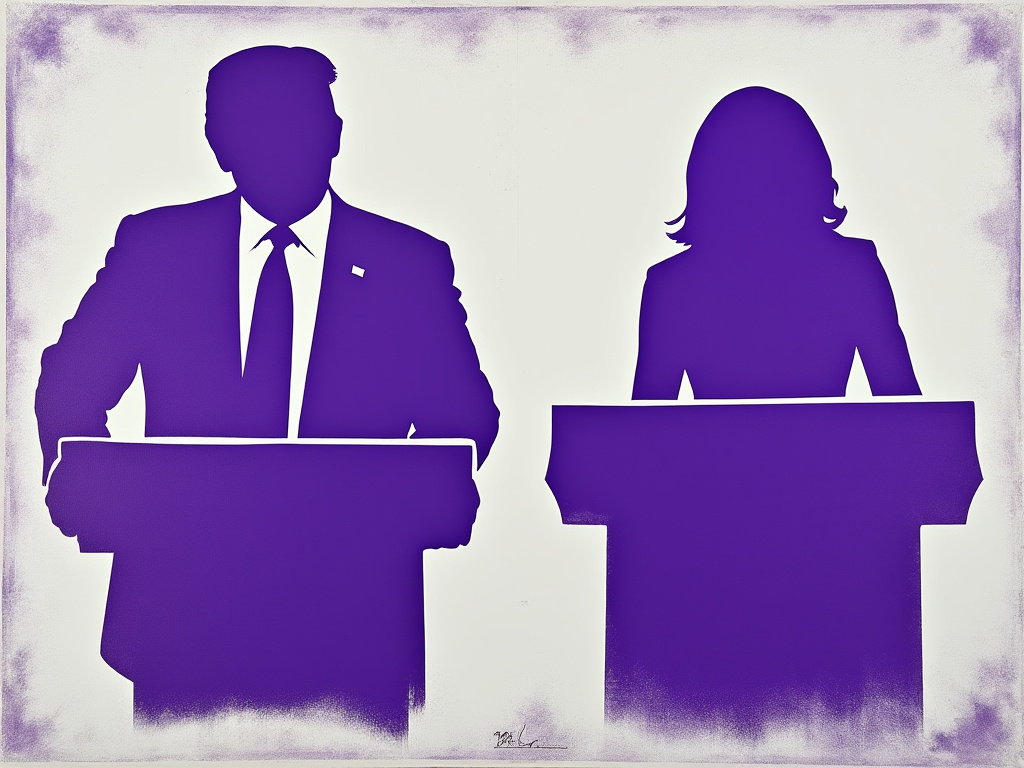As the United States approaches the final stretch of the 2024 presidential election, the narrative has shifted from traditional policy debates to a contest of personal allure. This election, pitting Kamala Harris against Donald Trump, can be vividly described as a contest between charisma and charm, a dynamic that has reshaped how candidates engage with the electorate.
Charisma on the Campaign Trail
Donald Trump, known for his larger-than-life personality, embodies what many consider political charisma. His campaign style has always been theatrical; he commands attention, often through bold statements, grandiose promises, and an unwavering confidence that captivates his base. Charisma, in this context, isn’t just about being likable; it’s about having a magnetic presence that inspires loyalty and devotion. Trump’s rallies, his social media presence, and his ability to dominate news cycles with his persona are all hallmarks of this charisma. It’s a force that has historically propelled him to defy political norms and maintain a fervent following despite controversies and policy missteps.
Charm as a Campaign Strategy
Conversely, Kamala Harris has navigated the campaign with a strategy that leverages charm. Charm here is less about commanding a room and more about establishing personal connections. Harris’s campaign has often highlighted moments where she engages in everyday activities like cooking or dancing, aiming to project an image of someone approachable, relatable, and perhaps more in tune with the daily lives of Americans. This approach seeks to break down the barriers between the politician and the public, making Harris seem like someone you might meet in your neighborhood or at a community event. It’s a subtle dance of making the electorate feel personally connected, a strategy that can be particularly effective in an era where voters crave authenticity from their leaders.
The Political Implications
This charisma-vs.-charm election isn’t just about style over substance but reflects deeper currents in American politics:
- Voter Engagement: Charisma might rally the base, but charm could expand it by winning over undecided voters or those disillusioned by traditional politics.
- Media Dynamics: Trump’s charisma often translates into high media engagement, where his every move is covered, sometimes overshadowing policy discussions. Harris’s charm, while perhaps less sensational, might foster a narrative of stability and sincerity, appealing to voters tired of the political circus.
- Policy Perception: While Trump’s charisma can overshadow policy details with his persona, Harris’s charm might invite closer scrutiny of her policies, as voters feel more personally connected, expecting her to reflect their values and concerns.
The Broader Impact
This election’s focus on personal appeal over policy specifics could signal a shift in how future campaigns are run. It raises questions about what voters prioritize in their leaders. Are we moving towards a political landscape where the ability to connect on a human level trumps detailed policy proposals? Or does this simply reflect a temporary public desire for respite from the policy-heavy, often divisive debates?
Moreover, this dynamic underscores a challenge for democracy: ensuring that elections are about more than just likability. While personal appeal can draw voters to the polls, the substance of governance—policies, ethics, and vision for the country—must not be lost in the allure of charisma or charm.
Conclusion
In this election, Kamala Harris and Donald Trump personify different approaches to voter engagement. Trump’s charisma seeks to energize and mobilize through spectacle, while Harris’s charm aims to endear by making politics personal. As we head to the polls, it’s crucial for voters to reflect on what these traits reveal about not just the candidates but also about themselves and the collective political culture they wish to cultivate. The choice between charisma and charm might just define more than the next president; it could redefine the essence of American political engagement for years to come.
The Charisma-vs.-Charm Election: 2024’s Unique Presidential Racehttps://t.co/YUfYM3183H
— 𝕏 Darbe (@Darbe) October 30, 2024





